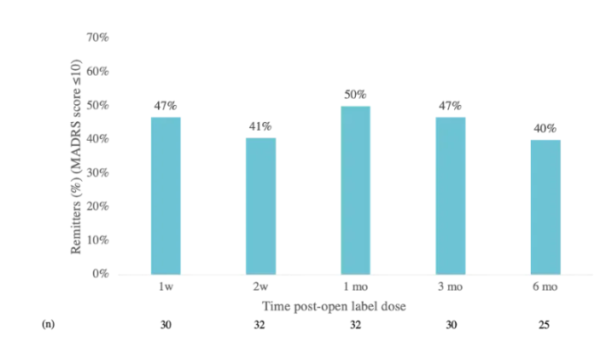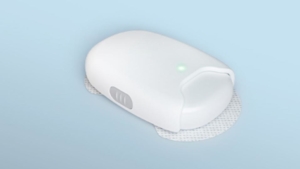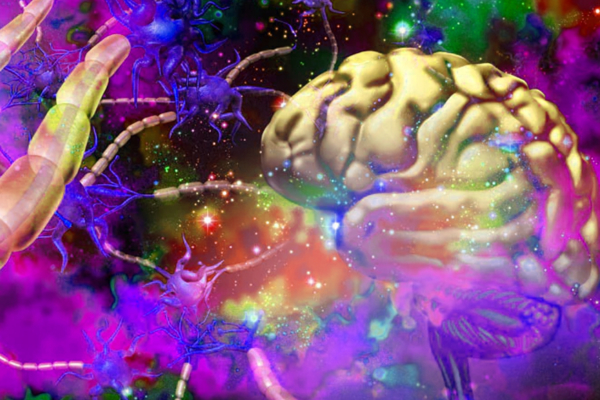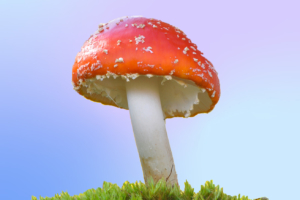
The latest medical news is in, folks, and it looks pretty positive! A Phase IIa clinical trial exploring the use of DMT for treating Major Depressive Disorder has revealed some promising results.
According to the study, a whopping 64% of patients who were able to achieve remission within three months while taking DMT were able to maintain that remission for a full six months – talk about progress!
You may also like: Scientists Reveal How DMT affects the Brain’s Advanced Functions
So, let’s talk about the study. Small Pharma, a company focusing on treating mental health conditions with short-duration psychedelic-assisted therapies using biotechnology, conducted a Phase IIa clinical trial of SPL026, their proprietary pharmaceutical-grade formulation of N,N-Dimethyltryptamine. The company released the study results on April 4th, 2023.
How was the study conducted?
During a clinical session with supportive therapy, patients diagnosed with Major Depressive Disorder (MDD) were given SPL026.
The trial evaluated how well and how safe it was to use 21.5mg their compound through an IV, along with supportive therapy, for 34 patients who had moderate to severe Major Depressive Disorder.
The trial had two stages. In the first stage, which lasted for two weeks and was randomized and placebo-controlled, the primary goal was to measure the effectiveness of a single SPL026 dose with supportive therapy. In the second stage, which was open-label, all patients were given SPL026 treatment and were observed for an additional three months.
The patients were monitored for six months after the open-label dose, even if the study was finished. This allowed for more evaluation of how long the antidepressant effect lasted, using the MADRS scale.
Both the single and two dose regimens had 25 patients each who completed the six-month patient follow-up.
Study Results
Out of the 25 participants, 14 patients had entered remission within the first three months of the study (known as “Prior Remitters”). Of those Prior Remitters, 9 patients (64%) maintained their remission for the entire six months. Overall, 10 out of the 25 patients (40%) achieved remission at the six-month mark.

Dr. Carol Routledge, who is the Chief Medical & Scientific Officer, made the statement. “With our ongoing analyses of the Phase IIa trial data, we are increasingly encouraged by the treatment potential of SPL026. A single dose in conjunction with therapy demonstrated a rapid and robust antidepressant effect after one week. This new data shows that the antidepressant effect was sustained for six-months in two-thirds of patients who were in remission at an earlier time-point in the study. As we finalize the design of the Phase IIb study, this data helps to inform our understanding of treatment durability and our approach to patient retreatment within the trial.”
In a comment, Robin Carhart-Harris PhD, who is the Director of the Psychedelics Division at the Weill Institute for Neurosciences at the University of California San Francisco, and also holds the Ralph Metzner Distinguished Professorship in Neurology, Psychiatry, and Behavioral Sciences, said,
“This data indicates that SPL026 can elicit a fast-acting antidepressant response that appears to be enduring in several cases. Recent neuroimaging and preclinical findings imply a regenerative action with DMT and other related serotonergic agonists.”
These results suggest that SPL026/DMT may be a safe and effective treatment option for MDD, which sounds like great news for all psychedelic therapy supporters. In general, a Phase IIa clinical trial involves a small number of participants and is conducted to assess the safety and effectiveness of a drug or therapy. However, larger Phase III trials are required to confirm these findings and to move towards FDA approval.
All in all, while there’s still a lot of work to be done before we can say with certainty that DMT may treat Major Depressive Disorder, these findings certainly give us something to feel good about. With more research and exploration, who knows where we’ll be able to go from here? Stay tuned, fellow health enthusiasts!





